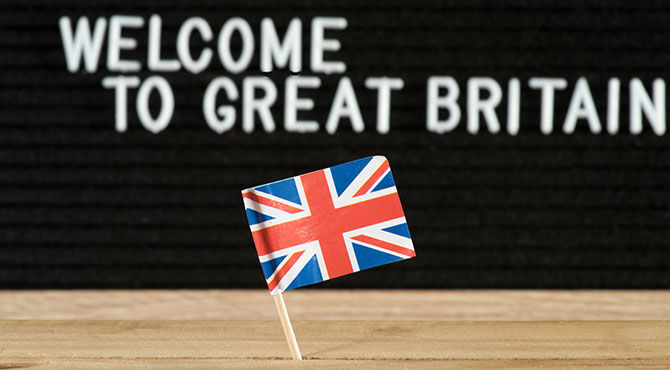Backing for immigration hits 40-year high
Why is there more support for legal immigration in Britain than at any other time since the 1980s?

 28 April 2020
28 April 2020Return to forward-thinking "Cool Britannia"
"The Britain of today, it has been said, is far more sceptical and hostile toward immigration than the ‘forward thinking’, multicultural ‘cool Britannia’ inherited by Tony Blair in the 1990s," he says."This claim certainly may have held up to evidence leading up to the turn of the decade, but what if now, rather than ‘more hostile than ever’, the British public is in fact becoming more open and tolerant of immigrants and immigration?"While it is often remarked than an ever-growing dissatisfaction with immigration underpinned the mobilisation and success of the BNP (British National Party) and UKIP (UK Independence Party), what if – almost completely paradoxically – a recent collapse in anti-immigrant hostility was in fact caused by the rise of these two parties?British feelings toward immigration were softening before the Brexit vote
"Lastly, what if – despite assertions to the contrary – trends in British immigration opinions have very little at all to do with the Brexit vote, and Brexit came at a time when immigration attitudes were already rapidly softening?"This is exactly what my latest research into British public opinion on immigration suggests."Based on 40 years of data from the British Election Study, the British Social Attitudes survey, the European Social Survey, European Values Study, Eurobarometer and World Values Study, Mr English's says his research indicates the Brexit vote came "slap bang" in the middle of a rapid decline in anti-immigrant sentiment from 2010-2017.He says that, in 1980, just over half of Britons would be considered to be generally hostile or negative about immigration. "This falls, rises and falls again by about 0.1 points over the late 1980s and early 1990s, before a low point in 1994 is followed by a meteoric rise in anti-immigrant hostility right up until the mid-2010s," he writes."A peak in 2010 ‘levels off’ to a mean of around 0.6 in the 2000s before suddenly and sharply plummeting through until 2018."Mr English says strong evidence substantiates claims made in recent months by many commentators and academics that attitudes toward immigration have been softening since the time of the EU referendum.But he adds the data provides evidence that this softening has been much larger and more dramatic than previously thought and has been taking place since well before the 2016 vote, "disputing the idea that the Brexit vote has any causal connection to the recent reversal of a long-term trend in rising hostility toward immigration".Britons: opposing the status quo in a "thermostatic" relationship with the political environment
Rather, suggests Mr English, the change in attitudes was the result of what he calls the 'thermostatic relationship' that Britons adopt towards the nation's political environment, which basically shows the more the public is pushed in one direction, the more likely people are inclined to resist and oppose the status quo.He argues that that Tony Blair's liberal and multicultural policies in the 1990s and early 2000s, along with the admission of mainly eastern European nations to the EU, led to a rise in anti-immigration opinion and the emergence of the likes of the BNP and UKIP.But after Prime Minister David Cameron’s 2011 declaration of the ‘failure of multiculturalism’ and of his ‘war’ on its proponents, pro-immigrant sentiments began to grow in response."If we understand public opinion as involved in a symbiotic, responsive, ‘thermostatic’ relationship with the political environment – where movements ‘too far’ in one direction by either one will be reciprocated by a movement in the opposite direction by the other – we can in turn understand the recent dramatic positive change in public opinion towards immigration," Mr English maintains.Read more news and views from David Sapsted.
Subscribe to Relocate Extra, our monthly newsletter, to get all the latest international assignments and global mobility news.Relocate’s new Global Mobility Toolkit provides free information, practical advice and support for HR, global mobility managers and global teams operating overseas. Access hundreds of global services and suppliers in our Online Directory
Access hundreds of global services and suppliers in our Online Directory
©2025 Re:locate magazine, published by Profile Locations, Spray Hill, Hastings Road, Lamberhurst, Kent TN3 8JB. All rights reserved. This publication (or any part thereof) may not be reproduced in any form without the prior written permission of Profile Locations. Profile Locations accepts no liability for the accuracy of the contents or any opinions expressed herein.






































